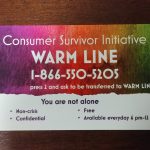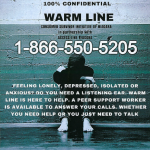Resources
Niagara Chapter – Native Women Inc. is here to offer support to urban Aboriginal women and their families. Ongoing support through referrals and advocacy is offered on an as-needed basis. If we are unable to assist you, we will do our best to refer you to the appropriate service provider.
- FOR OTHER ORGANIZATIONS – COVID-19 Vaccines Toolkit: Update 1
- Consumer Survivor Initiative: Warm Line – The WARM LINE is non-crisis phone support available to anyone 16 and up. For example, this could be someone who has had a difficult day, someone who would like to vent, or someone who is lonely and would just like someone else to talk to. Our phone line workers are peers and have been trained by the Distress Centre. This service is available 6 pm- 12 am 7 days a week, yes, even Christmas and New Year’s Day!
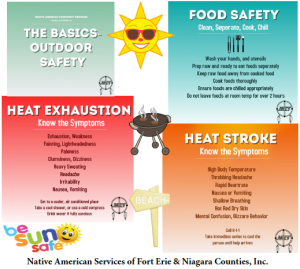 |
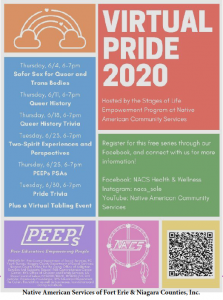 |
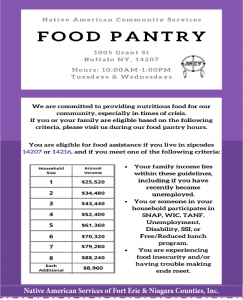 |
Links
- Ontario Native Women’s Association
- Native Women in the Arts
- Native Women Association of Canada
- First Nations Child and Family Caring Society of Canada
- Metis Nation of Ontario
- Brock University Aboriginal Student Services
- Niagara College Indigenous Education
- Statistics Canada Aboriginal Surveys
- Native American Community Services of Fort Erie & Niagara Counties, Inc.
- NationTalk: Canada’s Premier Aboriginal newswire, employment, event and tender service
- Indian Country Today: Telling the stories of indigenous communities by indigenous journalists
Documents and Reports
NWAC’s Guide to Voting
Download NWAC’s Guide to Voting here
Mno Bmaadziwin – Community Safety & Wellbeing: Indigenous Engagement Report (June 2021)
Indigenous Women Incarceration Rates Fact Sheet (2020)
Reconciliation with Indigenous Women Report (2020)
Creating Our Way Forward: Recommendations for Improving Niagara Region Public Health & Emergency Services’ Indigenous Engagement (2019)
Domestic Violence Resources
Click here to view the Manulife & Homewood Health document
Infant Family Support Report (2019)
NCNW ‘Let’s Talk’ Project (2018)
Click Here to View the NCNW ‘Let’s Talk’ Report of 2018
Waassenamawa Light Carriers Community Report (2017)
Click Here to View the Waassenamawa Light Carriers 2017 Community Report
Report to Premiers (2015)
This report shows information regarding Aboriginal Children in Care.
Calls To Action (2015)
This report details the Calls to Action regarding the Truth and Reconciliation Commission of Canada.
Follow-Up Report: The Changing Landscape of Indigenous Child Welfare (2015)
Changing Landscape in Indigenous Child Welfare
Children First (2011)
This report is the Final Report of the Provincial Aboriginal Child Advocate for the Ministry of Child and Youth Services 2011. We participated in a provincial Summit to gather information, and also hosted John Beaucage giving him a tour of the area, a meet and greet with Aboriginal Service Providers where he garnered much information and visit to FACS Niagara Hanover Drive where he laid tobacco down at the White Pine of Peace we planted there together with youth and families involved with the FACS Niagara.
Aboriginal Child Advocate Initiative (2010)
This link takes you to the full draft report of our Aboriginal Child Advocate program 2010. We are now in our 3rd printing of this report. We are happy to share this information and would ask if you do use this information that you kindly get in touch with us to inform us of how you are using it and what you are using it for. This is to keep our records up to date. A full printed hard copy of the report is available for a small fee of 10.00 that just covers our print and postage costs to get it to you.
In-Care Child Cost vs. Not In-Care Child Cost
This report details information regarding costs of necessities and services of children in-care vs. children not within the Child Welfare System.
United Nations Declaration of Indigenous Peoples Report (2007)
This report contains the United Nations- General Assembly.
Wen:de Report (2005)
This report was generated by the First Nations Family and Child Sharing Centre, and details Jordan’s Principle. This report influenced many programs and services in the province.

